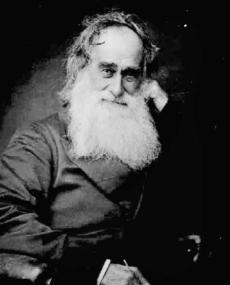
Robert Moffat was born on 21 December 1795 in Ormiston, East Lothian, Scotland. His parents were not wealthy. He was father-in-law to the missionary-explorer, David Livingstone and father to John Smith Moffat, who was also a missionary and later imperial agent used by Cecil John Rhodes to negotiate what became known as the Moffat Treaty with the Ndebele King, Lobengula.
To secure employment, Robert Moffat moved south to Cheshire in England, where he worked as a gardener. After some conflicts with his employer, he took a temporary post as a farmer at a plantation farm in Dukinfield, where he met his future wife. Before taking this post he had applied to the London Missionary Society (LMS) to become an overseas missionary. He was officially commissioned at Surrey Chapel as an LMS missionary.
After being commissioned as a missionary, he was sent to the Cape Colony, South Africa, where his wife to be, Mary Smith, followed him three years later. In 1820, Moffat and his wife moved to Griquatown, in the Northern Cape, where their daughter, Mary (who later married David Livingston) was born. He then moved with his family to Kuruman which is to the north of the Vaal River and settled among the Batswana people.
Moffat and his wife practised as missionaries in this area as well as beyond it. He went to other regions as far as the Ndebele Kingdom, part of modern-day Zimbabwe. Some of his experiences in the region were reported to the Royal Geographical Society. He also wrote and published Missionary Labours and Scenes in South Africa (1842) where he reveals his family experiences, and he translated the Bible and John Bunyan’s The Pilgrim’s Progress into Setswana, an African language spoken around Kuruman, where he had settled.
In 1870, Moffat and his family went back to Britain. He died on 9 August 1883, in Leigh, Kent, England.